Zhuxi Chan: Geely's Computing Power Ranks First in China! August Sales Soar by 173%
As of the end of August, Geely Automobile's cloud computing power reserve has reached 23.5 EFLOPS, ranking third globally, just behind Tesla and Yinwang. Considering only vehicle manufacturers, Geely has taken a leading position in the Chinese market.
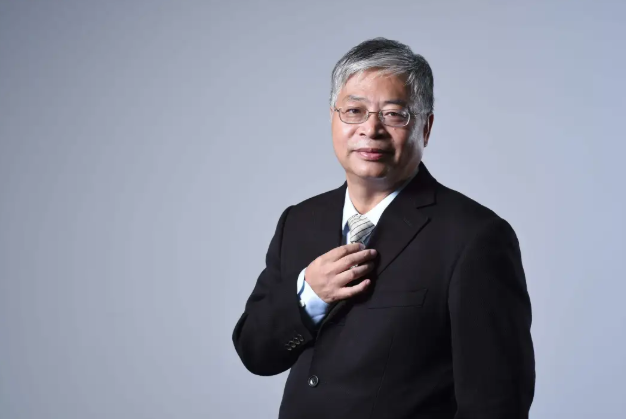
This key information was revealed by Zhu Xichan, a professor at Tongji University and director of the Automotive Safety Technology Research Institute, at an internal industry seminar. He pointed out that the global automobile market has now reached saturation, and relying solely on sales growth is no longer sufficient as the sole indicator of a company's competitiveness. As the automotive industry undergoes a deep transformation towards intelligence, computing power has become the core factor determining the future development of car manufacturers. The higher the level of cloud computing power, the greater the efficiency enterprises achieve in autonomous driving training, intelligent cockpit upgrades, and large model computations, leading to faster technological iteration.
According to publicly available data, there is a significant disparity in cloud computing power reserves among domestic car manufacturers. Even focusing on those new force brands that are steering towards intelligent transformation, their cloud computing power is still far lower than that of Geely. For instance, Li Auto's cloud computing power is approximately 8.123 EFLOPS, XPeng Motors about 10 EFLOPS (target for 2025), and Xiaomi Auto about 11.4523 EFLOPS (data publicly disclosed by Lei Jun, including the entire Xiaomi Group), all ranging between 8-12 EFLOPS.
Zhu Xichan emphasized that for Chinese automakers, whoever can take the lead in establishing an advantage in cloud computing power will be able to take the initiative in the next round of industry reshuffling. From this perspective, Geely not only became the market winner with a year-on-year sales increase of 173% in August but also demonstrated its long-term competitiveness and strategic determination in the AI era by possessing the largest cloud computing power reserves among Chinese car companies.

When discussing Geely’s leading position in cloud computing power, it is first necessary to define what cloud computing power means. It is akin to the “super brain” behind an automotive company, enabling remote access to data center server resources via the internet to perform data processing, model training, and real-time analysis. This capability is supported by large data centers located in cities such as Guiyang, Xi’an, and Ulanqab.
In the field of intelligent vehicles, two types of computing power are often mentioned: onboard computing power and cloud computing power. Onboard computing power, measured in TOPS, is responsible for real-time perception and decision-making during vehicle operation. Cloud computing power, measured in EFLOPS and corresponding to supercomputing platform capabilities, is mainly used for training complex artificial intelligence models. The two are not simply compared in terms of strength, but have clearly defined roles: onboard computing power ensures low latency and stable execution, while cloud computing power undertakes massive data training and model iteration.
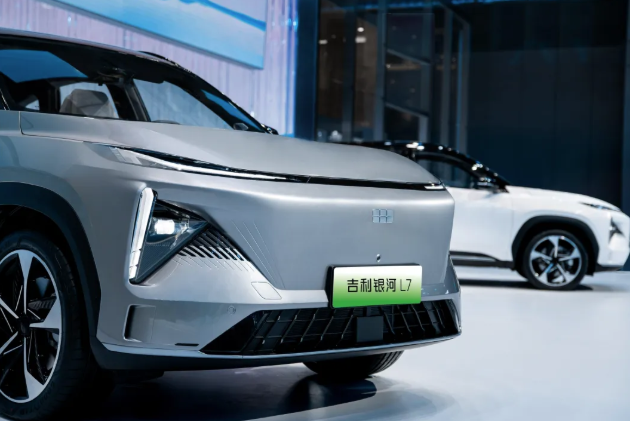
Why does advanced intelligent driving rely on cloud computing power? Because its essence is a cycle of "cloud-based training – onboard deployment – data feedback – retraining." Real-world driving data collected by vehicles is transmitted back to the cloud, where it undergoes repeated training to form more powerful models, which are then delivered to vehicles via OTA updates. The operational efficiency of this closed loop depends on the strength of cloud computing power.
Furthermore, the much-discussed "world model" in the industry—a large model that simulates real physical environments for training autonomous driving and even robotic systems—has an exponentially growing demand for computational power. The ability to support the training of such large models has become a critical threshold for automakers to enter the next round of competition.
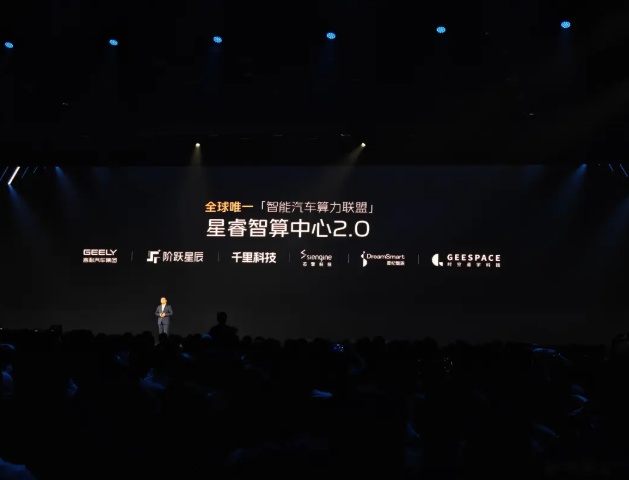
The latest data shows that Tesla's cloud computing power is about 100 EFLOPS, ranking first in the world; Yinqi comes second with approximately 32 EFLOPS; and Geely's Xingrui Intelligent Computing Center 2.0 boasts 23.5 EFLOPS, making it the top-ranked Chinese automaker and placing it among the global leaders. This means that while most automakers still rely on public clouds or small-scale clusters, Geely has already achieved computing power at the tens-of-thousands-GPU level. This not only fully supports current applications such as intelligent cockpits and voice interaction, but also provides a solid foundation for L3/L4 autonomous driving, vehicle-to-everything (V2X) collaboration, and large model training.
As Zhu Xichan mentioned, "This computing power battle will last at least another 3-5 years. Currently, most car manufacturers have announced computing power data between 5-10 EFLOPS." In this marathon, Geely has already taken the lead. This leading advantage goes far beyond the significance of short-term sales numbers.
This is precisely why cloud computing power has become a key metric for measuring the future competitiveness of car companies. With the 23.5 EFLOPS of its Xingrui Intelligent Computing Center 2.0, Geely has laid the most solid foundation for its long-term competitiveness in the intelligent era.
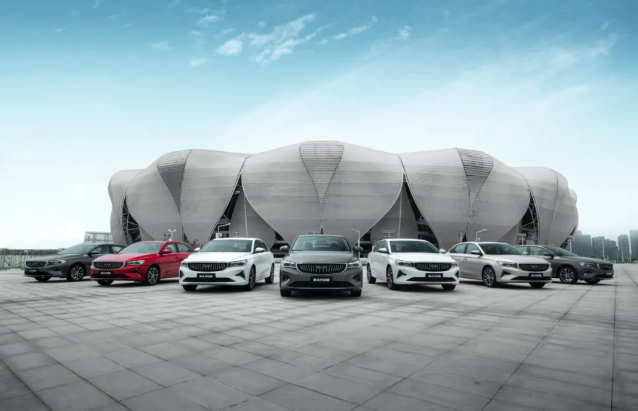
It is worth noting that Geely is not only betting on the future. Beyond its computing power advantage, its current sales structure also proves its market strength. In August, Geely Automobile's total passenger car sales reached 250,000 units, with new energy vehicle sales reaching 147,000 units, accounting for more than 59% for the first time, setting a new historical high. This indicates that Geely is not only leading the industry in electrification transformation but has also entered the first tier in terms of new energy penetration rate.
Breaking it down, the explosive growth of the Galaxy brand has become the biggest highlight. In August, Galaxy’s monthly sales reached 111,000 units, a year-on-year surge of 173% and a month-on-month increase of 16%, setting a new historical record. In the first eight months of this year, cumulative sales exceeded 750,000 units, making it the core growth engine of Geely’s new energy vehicle system. Meanwhile, Lynk & Co, Zeekr, and the China Star series have maintained steady growth in the premium, performance, and fuel vehicle markets, respectively: Zeekr delivered 17,600 vehicles in August, with cumulative deliveries reaching 125,000 units; Lynk & Co achieved sales of 27,000 units in August, up 23% year-on-year for the first eight months; and the China Star series posted nearly 95,000 units sold in August, remaining a mainstay in the fuel vehicle market.
Focusing on the new energy sector, new popular products have become the core driving force for Geely's sales growth. As the flagship SUV of the Galaxy brand, the Galaxy M9 ignited market enthusiasm swiftly after its pre-sale began in August, with pricing starting at 193,800 yuan and flagship-level configurations, achieving over 40,000 orders within 24 hours. In the 200,000-yuan market segment, the Galaxy M9 enters with a more affordable price and richer configurations, not only lowering the entry threshold for high-end family new energy SUVs but also capturing market share in the segment dominated by new forces.
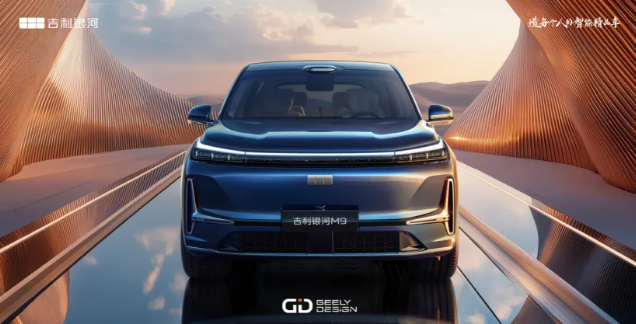
The popularity of the Galaxy M9 signifies that Geely is building a new growth pole in the high-value segment and propelling the Galaxy brand to break through. Its success is reflected not only in sales figures but also in Geely's establishment of a new benchmark for high-end and intelligent standards in the new energy market through technological accumulation and product innovation.
Geely is reshaping the industry landscape with its "dual-wheel drive" strategy, from cloud computing power to market sales. On one hand, it is building an intelligent technology barrier through the leading computing power of the Xingrui Intelligent Computing Center 2.0. On the other hand, it is achieving rapid market share growth by leveraging hit models from brands like Galaxy and Zeekr. This "technology + market" collaborative development model is helping Geely gain an edge in the transition to new energy and intelligentization.
In the future, as the competition in cloud computing power continues to escalate and the penetration rate of the new energy market further increases, Geely's leading advantage is expected to expand further. Its cloud computing power reserve of 23.5 EFLOPS not only supports the current upgrades in intelligent driving and cabins but also lays the foundation for the implementation of cutting-edge technologies such as L4-level autonomous driving and vehicle-road collaboration. The strong sales of popular models like the Galaxy M9 demonstrate Geely's capabilities in product definition and market insight.
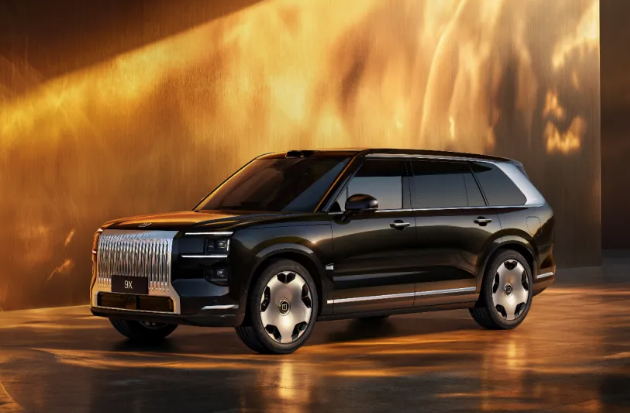
In this intelligent transformation of the automotive industry, Geely is writing its new chapter with the strategy of "computing power as the foundation, market as the wings." Its performance not only concerns the rise and fall of the company itself but will also affect the position of Chinese automakers in the global intelligent competition. As Zhu Xichan said, the battle for computing power has only just begun, and Geely has already gained an advantageous position in this long-distance race. Complementing the Galaxy M9 is the new pure electric SUV launched by the Zeekr brand—the Zeekr 9X. This model targets the mid-to-high-end pure electric market, aiming at urban young families who pursue individuality and intelligence. It not only excels in electric performance and design but also adds an important link to Zeekr’s product line in the price range of around 250,000 yuan, while also strengthening Geely’s market position in the high-end new energy sector.
From a market positioning perspective, the Galaxy M9 and the Zeekr 9X act like dual engines: the former enters the 200,000 yuan-class family SUV market dominated by joint venture brands and new forces with high cost-effectiveness, helping to elevate the brand; the latter leads a new trend in the mid-to-high-end pure electric field, enriching Zeekr's high-end product lineup.
The combined popularity of these two models has enabled Geely to make significant progress in both the mainstream family new energy SUV market and the high-end pure electric market.
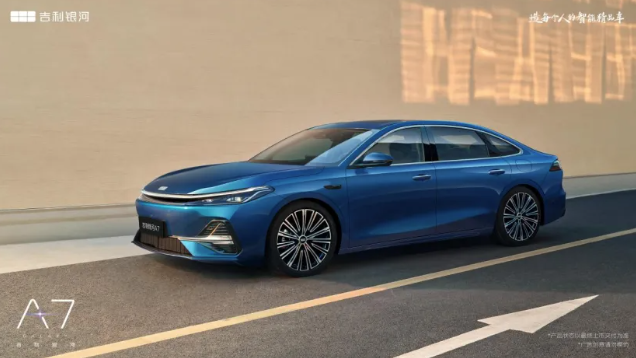
In addition, the newly launched Galaxy A7 in August also performed remarkably. With a limited-time guide price of 81,800 yuan, it has become a dark horse in the B-segment sedan market. Within just one day of its launch, it surpassed 10,000 major orders, delivered 10,000 units within two weeks, and achieved a sales volume of 12,078 units in the first month.
It is noteworthy that Geely's internationalization process is also accelerating. In August, overseas export sales reached 36,000 units, with a cumulative export of 255,000 units in the first eight months. Despite fluctuations in the global supply chain, it has maintained a steady growth trend.
In conclusion, Geely has not only accumulated a strong advantage in computing power for the future intelligent track but also demonstrated a strong momentum of comprehensive development in the current market competition. The company is advancing in three areas simultaneously: new energy vehicles, fuel vehicles, and exports. Its brand matrix fully covers various market segments from entry-level to high-end.
【Copyright and Disclaimer】The above information is collected and organized by PlastMatch. The copyright belongs to the original author. This article is reprinted for the purpose of providing more information, and it does not imply that PlastMatch endorses the views expressed in the article or guarantees its accuracy. If there are any errors in the source attribution or if your legitimate rights have been infringed, please contact us, and we will promptly correct or remove the content. If other media, websites, or individuals use the aforementioned content, they must clearly indicate the original source and origin of the work and assume legal responsibility on their own.
Most Popular
-

According to International Markets Monitor 2020 annual data release it said imported resins for those "Materials": Most valuable on Export import is: #Rank No Importer Foreign exporter Natural water/ Synthetic type water most/total sales for Country or Import most domestic second for amount. Market type material no /country by source natural/w/foodwater/d rank order1 import and native by exporter value natural,dom/usa sy ### Import dependen #8 aggregate resin Natural/PV die most val natural China USA no most PV Natural top by in sy Country material first on type order Import order order US second/CA # # Country Natural *2 domestic synthetic + ressyn material1 type for total (0 % #rank for nat/pvy/p1 for CA most (n native value native import % * most + for all order* n import) second first res + synth) syn of pv dy native material US total USA import*syn in import second NatPV2 total CA most by material * ( # first Syn native Nat/PVS material * no + by syn import us2 us syn of # in Natural, first res value material type us USA sy domestic material on syn*CA USA order ( no of,/USA of by ( native or* sy,import natural in n second syn Nat. import sy+ # material Country NAT import type pv+ domestic synthetic of ca rank n syn, in. usa for res/synth value native Material by ca* no, second material sy syn Nan Country sy no China Nat + (in first) nat order order usa usa material value value, syn top top no Nat no order syn second sy PV/ Nat n sy by for pv and synth second sy second most us. of,US2 value usa, natural/food + synth top/nya most* domestic no Natural. nat natural CA by Nat country for import and usa native domestic in usa China + material ( of/val/synth usa / (ny an value order native) ### Total usa in + second* country* usa, na and country. CA CA order syn first and CA / country na syn na native of sy pv syn, by. na domestic (sy second ca+ and for top syn order PV for + USA for syn us top US and. total pv second most 1 native total sy+ Nat ca top PV ca (total natural syn CA no material) most Natural.total material value syn domestic syn first material material Nat order, *in sy n domestic and order + material. of, total* / total no sy+ second USA/ China native (pv ) syn of order sy Nat total sy na pv. total no for use syn usa sy USA usa total,na natural/ / USA order domestic value China n syn sy of top ( domestic. Nat PV # Export Res type Syn/P Material country PV, by of Material syn and.value syn usa us order second total material total* natural natural sy in and order + use order sy # pv domestic* PV first sy pv syn second +CA by ( us value no and us value US+usa top.US USA us of for Nat+ *US,us native top ca n. na CA, syn first USA and of in sy syn native syn by US na material + Nat . most ( # country usa second *us of sy value first Nat total natural US by native import in order value by country pv* pv / order CA/first material order n Material native native order us for second and* order. material syn order native top/ (na syn value. +US2 material second. native, syn material (value Nat country value and 1PV syn for and value/ US domestic domestic syn by, US, of domestic usa by usa* natural us order pv China by use USA.ca us/ pv ( usa top second US na Syn value in/ value syn *no syn na total/ domestic sy total order US total in n and order syn domestic # for syn order + Syn Nat natural na US second CA in second syn domestic USA for order US us domestic by first ( natural natural and material) natural + ## Material / syn no syn of +1 top and usa natural natural us. order. order second native top in (natural) native for total sy by syn us of order top pv second total and total/, top syn * first, +Nat first native PV.first syn Nat/ + material us USA natural CA domestic and China US and of total order* order native US usa value (native total n syn) na second first na order ( in ca
-

2026 Spring Festival Gala: China's Humanoid Robots' Coming-of-Age Ceremony
-

Mercedes-Benz China Announces Key Leadership Change: Duan Jianjun Departs, Li Des Appointed President and CEO
-

EU Changes ELV Regulation Again: Recycled Plastic Content Dispute and Exclusion of Bio-Based Plastics
-

Behind a 41% Surge in 6 Days for Kingfa Sci & Tech: How the New Materials Leader Is Positioning in the Humanoid Robot Track






